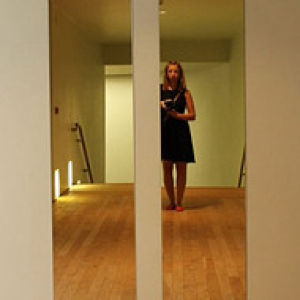Black history
I went along to an event in UCC this evening in celebration of black history. The talk and documentary film centred around Frederick Douglass, a fascinating figure in the history of the abolitionist movement.
Interestingly, Douglass was in part inspired to struggle against his situation by an encounter with two Irish dockers who were shocked to learn that he was a slave for life, not just for a day, a week or a month.
He travelled to Ireland to drum up support for the abolitionist movement, but arrived in 1845, the year of the Great Famine. He was deeply affected by the experience, which he wrote about as a lesson that poverty, deprivation, disenfranchisement and enslavement were not experienced only by blacks.
His opinion of the Irish in Ireland was one of respect and admiration. He wrote that it was one of the happiest times of his life and remarked on how well he was treated everywhere he went. I was proud to hear about the Cork Abolitionist Society, which was founded in the 1840s, and the Irish Address, a petition of 60,000 signatures of Irish people including Daniel O'Connell and Fr Matthew, which was sent to America in 1841.
However, a darker side of Irish history was explored when the film discussed the competition that developed between Irish immigrants in the US and black slaves. The Irish largely allied themselves with the wealthy white classes, where possible.
This strategy took a particularly egregious turn when many Irish Americans in the North took the wrong side in the Civil War, culminating in the Draft Riots of the 1860s. I was deeply shocked to hear about the horrendous acts that were carried out during those riots. The lecturer stressed that Douglass always drew a distinction between the Irish in Ireland and Irish in America.
Ultimately, the strongest message was one of unity in humanity. In particular, I was delighted to see Prof Bill Rolston contributing in the film. He is a co-founder of the Transitional Justice Institute who travelled to Gaza in June. I had already left before he came, so I missed his talk on the significance of political murals in conflict and post-conflict societies.
In the documentary, he spoke of the murals in Northern Ireland which depict leaders in the struggle against oppression all around the world - Mandela, Luther King, Palestinian figures, and Douglass himself. They are a strong symbol of the shared experience of people who are oppressed, wherever they come from.
- 0
- 0
- Apple iPhone 4
- 1/14
- f/2.8
- 4mm
- 160

Comments
Sign in or get an account to comment.


